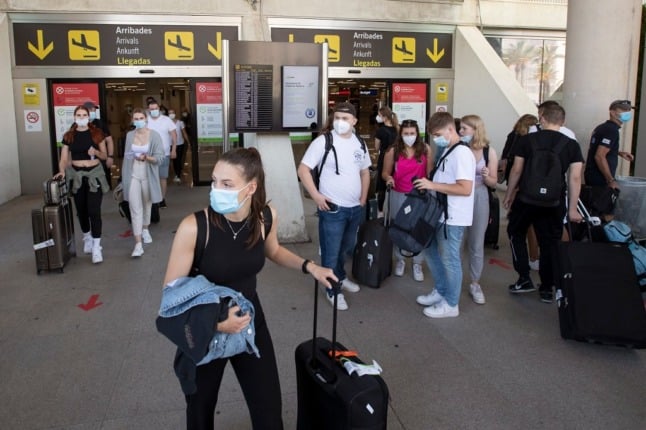Transport Secretary Grant Shapps announced on July 8th that from Monday July 19th fully vaccinated Brits visiting amber list countries, including Spain, would no longer have to quarantine on arrival back in the UK.
As a result, budding British tourists have rushed to buy their tickets to Spain, with flight bookings increasing by 400 percent since July 8th, according to the Spanish Airlines Association (ALA).
Airlines such as Ryanair and Easyjet have added extra flight connections between Spain and the UK following the announcement.
It’s positive news for Spain’s ailing tourism sector, which in recent days has seen how France has tightened restrictions and warned its citizens to avoid booking their holidays in Spain, and how Germany has put all of Spain on its ‘risk’ list.
“Bookings were going well but have slowed down, especially from France,” Jorge Marichal, head of the Spanish Confederation of Hotels and Tourist Accommodation (CEHAT), told Spain’s RTVE public broadcaster.
“The situation changes very quickly and within hours. The whole summer will be the same — a rollercoaster ride in which we will have to make decisions as we go along.”
The UK government’s decision to take the Balearic Islands off its quarantine-free green list has also led to an increase of 88 percent in holiday cancellations by unvaccinated British tourists who would have to quarantine for ten days on return.
Thousands of Brits have also cut their holidays short in the holiday islands to avoid having to quarantine back in the UK from Monday July 19th.
“The continuous lack of transparency about the methodology and data behind these UK government changes make it incredibly difficult for clients to book in advance with confidence,” a TUI spokesperson told Spanish news agency EFE.
The loss of confidence in Spain as a safe tourism destination comes at a time when the country is immersed in its fifth wave of the coronavirus, with the fortnightly infection rate more than quintupling in three weeks up to 539 cases per 100,000 people on Friday July 16th.
The infection rate is just as high in the UK, even though around 68 percent of the population has been fully vaccinated compared to Spain’s inoculation rate of 50 percent.
Although the easing of restrictions for vaccinated UK travellers is positive news for holidaymakers, the quarantine exemption is not extended to the majority of UK nationals who live in Spain and the EU, who will still have to quarantine when visiting friends or family in the UK, even if they are fully vaccinated. This is because the quarantine exemption only applies to those who have had vaccines administered by the NHS.
This has led to an online petition being launched to persuade the UK government to allow vaccinated Britons living abroad to visit families back home without having to quarantine, a campaign which last Friday was nearly halfway to its target of forcing a debate in Parliament.
Fully vaccinated British tourists heading to Spain still have to pay around £160 for the compulsory travel testing package.
READ ALSO:



 Please whitelist us to continue reading.
Please whitelist us to continue reading.
And this is the reason Spain’s numbers are going up again. The UK is out of control and they aren’t even trying to do anything about it. Yet Spain welcomes all these people here from the UK because it’s more about the summer profits than about keeping the pandemic under control.